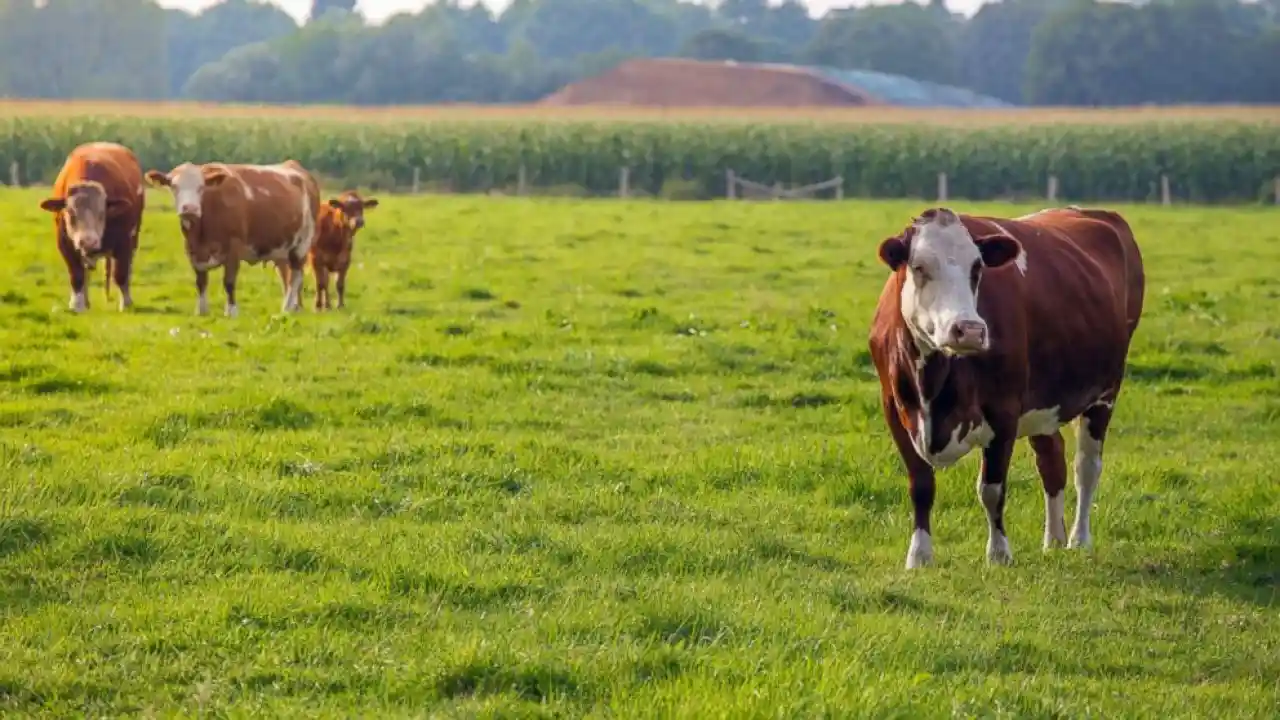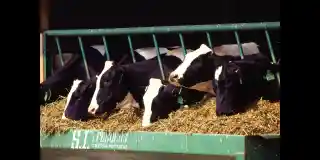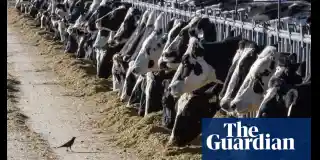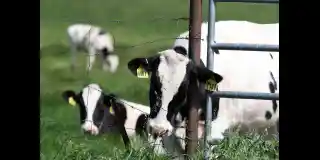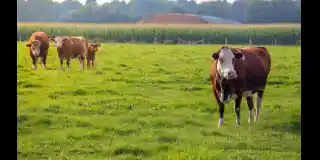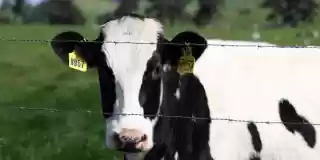Dairy Worker in Colorado Infected with Bird Flu, Fourth Human Case in Ongoing Outbreak
Health officials said the man had mild symptoms, reporting only eye inflammation, and has recovered. A dairy worker in Colorado has been infected with bird flu, marking the fourth human case in an ongoing outbreak that started with detection of the disease in cattle this spring. Colorado health officials said the man experienced mild symptoms, reporting only eye inflammation, a condition known as conjunctivitis. The Colorado Department of Public Health and Environment said in a statement that the man was given antiviral medication and recovered.
He works at a dairy farm in northeastern Colorado and had direct exposure to dairy cattle infected with H5N1, a virus that causes bird flu. Colorado health officials said they provided personal protective equipment to the facility where the man worked. 'We are still gathering additional information about the worker's exposures and PPE use,' state epidemiologist Rachel Herlihy said in a statement. No household contacts of the farmworker have developed symptoms and there is no evidence of person-to-person transmission, Herlihy said. State and local health officials are conducting follow-up investigations and will do additional testing if needed, Herlihy said.
Two other dairy workers infected earlier -- in Texas in April and in Michigan in May -- also reported eye inflammation. A second Michigan worker infected in late May reported having a cough and eye discomfort with watery discharge. That worker was the first to report more extensive respiratory and eye symptoms. Colorado health officials said the worker developed symptoms in late June, reported his symptoms one day later and was tested two days after symptoms began. Those initial tests were inconclusive.
Additional testing by the Centers for Disease Control and Prevention confirmed the presence of bird flu. In 2022, a poultry worker in Colorado tested positive for the same strain of avian influenza. Across the world, cases of human illness have ranged from mild infections to more severe illness, including pneumonia. Federal health and agriculture officials have repeatedly underscored the importance of dairy farm owners ensuring that workers take precautions -- such as wearing personal protective equipment -- when working with infected cattle. Federal and state officials have made supplies available to dairy farms but have not required their use.
Dairy farm workers typically express milk by hand from cow teats before attaching milking equipment. A splash of contaminated milk could get into the eye directly, or the virus could enter when workers touch their eyes with a contaminated hand. Eye infections have been associated with previous human infections of bird flu. Many public health experts have said insufficient testing of cattle is hampering the ability to understand and control the outbreak, which was officially detected in March but may have been in cows since December. A recent Agriculture Department study of H5N1 in 15 dairy herds and eight poultry flocks in Michigan found three risk factors for local spread, including contaminated equipment or machinery, people who carry the virus on their clothing or boots, and the animals themselves.
Federal health officials said this week their assessment of risk has not changed. The threat to the public remains low, and although dairy workers and others in contact with infected animals are at higher risk, U.S. officials are not recommending vaccination for any groups of people. Earlier this week, federal officials announced plans to expand vaccine and testing capacity in case the ongoing bird flu outbreak in dairy cattle causes an increase in human cases, if the virus changes to become more easily spread or causes more severe disease, or if cases occur with no connection to an infected herd or person. The U.S.
government has stockpiled 4.8 million doses of bird flu vaccine, and those shots are expected to be available starting in mid-July. The U.S. government has also awarded $176 million to Moderna to complete development and testing of an mRNA-based vaccine against H5N1.The case was confirmed in a dairy worker in Colorado. The fourth human case of bird flu linked to the current dairy cow outbreak was confirmed on Wednesday in a dairy worker in Colorado, according to the Centers for Disease Control and Prevention. Previously, one human case had been reported in Texas and two human cases reported in Michigan .
As with the previous cases, the patient is a dairy farm worker who came into contact with cows that tested positive for the H5N1 strain of bird flu, or avian influenza. The worker was previously being monitored because of their exposure to infected cattle and reported symptoms to state health officials. Testing results were inconclusive at the state level, but specimens forwarded to the CDC for additional testing were positive for influenza A, the federal health agency said. The patient reported eye symptoms only. They received treatment with oseltamivir, an antiviral drug used to treat influenza, and have since recovered.
The CDC said the risk to the general public remains low, but advises people to avoid close, long or unprotected exposures to sick or dead animals. People are also advised to avoid unprotected exposure to animal excrement, litter, unpasteurized milk or materials that have been touched by -- or close to -- animals with suspected or confirmed bird flu. In early March, the U.S. Department of Agriculture announced a bird flu strain that had sickened millions of birds across the U.S. was identified in several mammals this year.
A few weeks later, federal and state public health officials said they were investigating an illness among primarily older dairy cows in Kansas, New Mexico and Texas and causing symptoms including decreased lactation and low appetite. The USDA said in a statement at the time that 'there is no concern about the safety of the commercial milk supply or that this circumstance poses a risk to consumer health.' Currently, Colorado is reporting more cases of bird flu in livestock than any other state with 23 livestock herds affected in the last 30 days as of July 1, according to a USDA interactive dashboard . In late April, reports emerged that bird flu fragments had been found in samples of pasteurized milk. However, the fragments are inactive remnants of the virus and cannot cause infection. Federal agencies maintain the U.S.
commercial milk supply remains safe because milk is pasteurized and dairy farmers are required to dispose of any milk from sick cows, so it does not enter the supply. In May, the CDC said in a summary that it is preparing for the 'possibility of increased risk to human health' from bird flu as part of the federal government's preparedness efforts, including filling doses of bird flu vaccine into vials to shore up the national stockpile.

https://www.washingtonpost.com/health/2024/07/03/bird-flu-colorado-dairy-farm-worker/
https://abcnews.go.com/Health/4th-human-case-bird-flu-linked-dairy-cow/story?id=111654647
https://www.reuters.com/world/americas/colorado-reports-human-case-bird-flu-2024-07-03/
 NewsBOT
NewsBOT